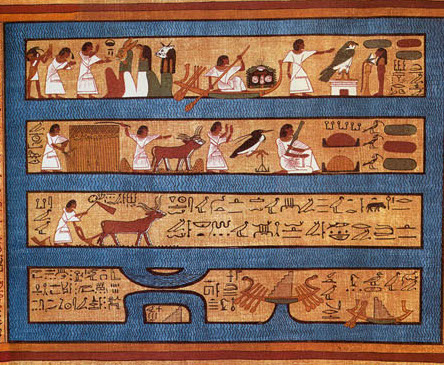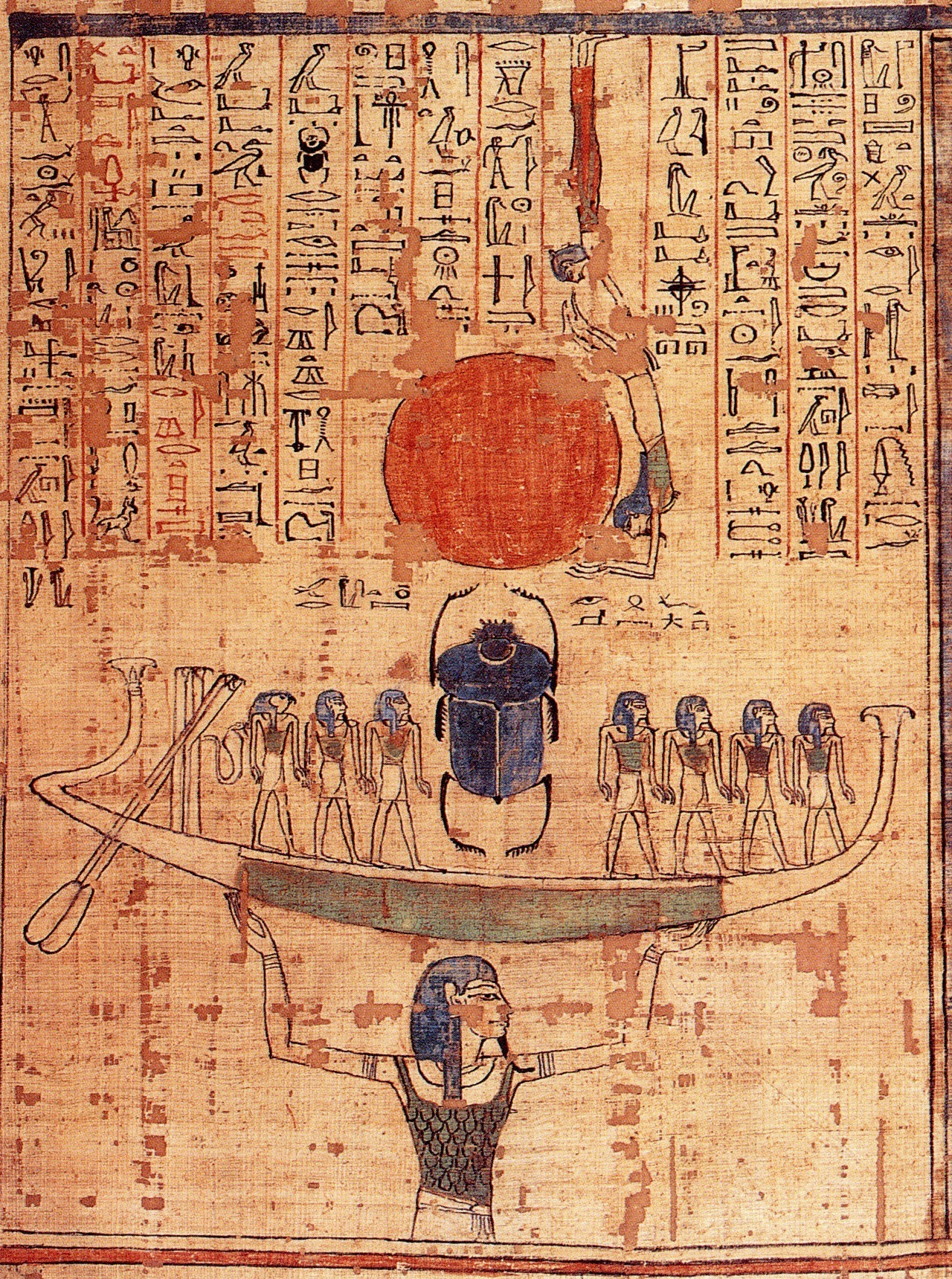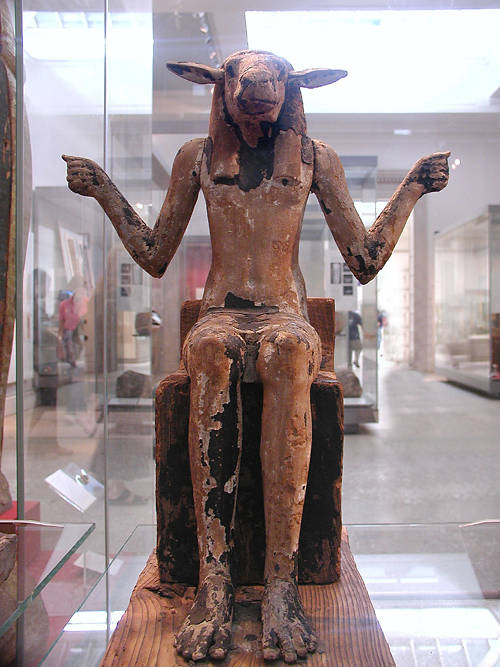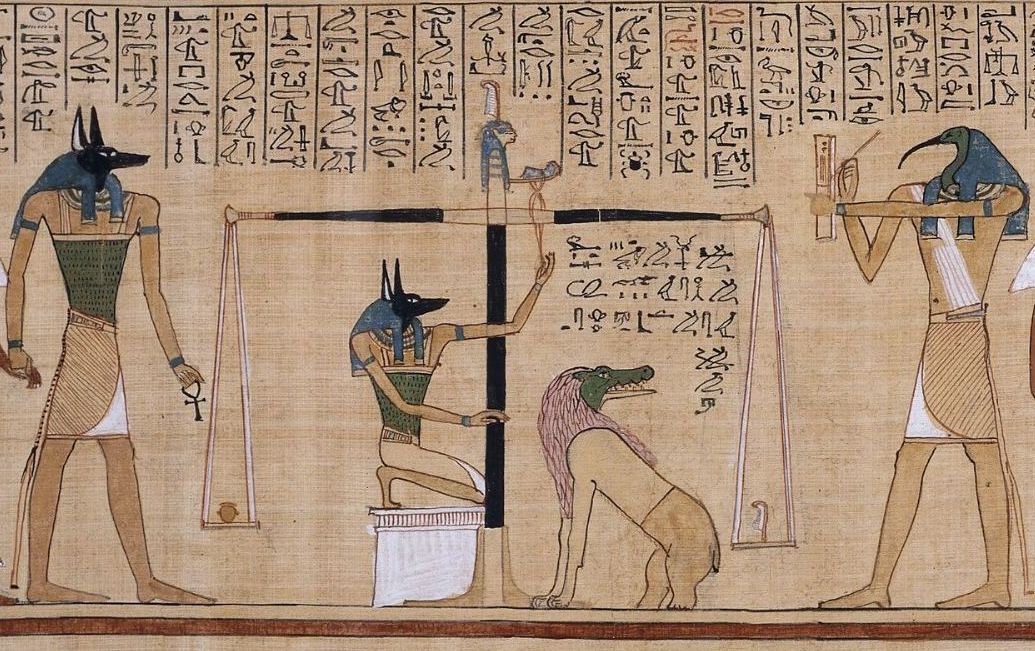|
Reed Fields
__NOTOC__ In ancient Egyptian mythology, Aaru (; egy, jꜣrw "Reeds, rushes"), known also as '' sḫt-jꜣrw'' or the Field of Reeds, is the heavenly paradise where Osiris rules. It has been described as the '' ka'' (a part of the soul) of the Nile Delta. The ancient Egyptians believed that the soul resides in the heart and so, upon death, the Weighing of the Heart occurred. Each human heart is weighed on a giant scale against an ostrich feather, which represents the concept of Maat. Those souls which balance the scales are allowed to start a long and perilous journey to the Field of Reeds, where they will exist in pleasure for all eternity. Hearts heavy with evil tip and fall into the crocodilian jaws of the demon Ammit. After this "second death", the soul is doomed to restlessness in Duat. The souls who qualify undergo a long journey and face many perils before reaching Aaru. Once they arrive, they enter through a series of gates. The exact number of gates varies accordi ... [...More Info...] [...Related Items...] OR: [Wikipedia] [Google] [Baidu] |
Egyptian Mythology
Egyptian mythology is the collection of myths from ancient Egypt, which describe the actions of the Egyptian gods as a means of understanding the world around them. The beliefs that these myths express are an important part of ancient Egyptian religion. Myths appear frequently in Egyptian writings and art, particularly in short stories and in religious material such as hymns, ritual texts, funerary texts, and temple decoration. These sources rarely contain a complete account of a myth and often describe only brief fragments. Inspired by the cycles of nature, the Egyptians saw time in the present as a series of recurring patterns, whereas the earliest periods of time were linear. Myths are set in these earliest times, and myth sets the pattern for the cycles of the present. Present events repeat the events of myth, and in doing so renew ''maat'', the fundamental order of the universe. Amongst the most important episodes from the mythic past are the creation myths, in which the ... [...More Info...] [...Related Items...] OR: [Wikipedia] [Google] [Baidu] |
Gate Deities Of The Underworld
The gate deities of the underworld were ancient Egyptian minor deities charged with guarding the gates of the Egyptian underworld.Hart 1986, pp. 68–72.Wilkinson 2003, pp. 81–2. Description and partition The Egyptians believed that in the netherworld, the Duat, there were various gates, doors and pylons crossed every night by the solar boat ( Atet) of the sun-god Ra and by the souls directed to the world of the dead. Ancient funerary texts provide many different descriptions of the afterlife gates. Sometimes more than 1,000 guardian deities are listed. According to a more general view, every gate was guarded by a minor god who allowed access only to the souls capable of pronouncing the secret name of the god himself, as a sort of "password". The walls of many Pharaonic tombs in the Valley of the Kings are decorated with the texts of the Book of Gates, which describes the twelve gates or pylons of the underworld: in spite of being imagined as architectural barriers ... [...More Info...] [...Related Items...] OR: [Wikipedia] [Google] [Baidu] |
Conceptions Of Heaven
Conception commonly refers to: * Concept, an abstract idea or a mental symbol * Conception (biology), the process of becoming pregnant, involving fertilization and implantation of the embryo in the uterus Conception may also refer to: Entertainment * ''Conception'' (album), an album by Miles Davis * "Conception" (song), a 1950 jazz standard by George Shearing * ''Conception'', a posthumous album by Bill Evans * Conception (band), a Norwegian band * ''Conception'' (film), a 2011 film * ''Conception'' (video game), a 2012 role-playing video game developed by Spike Maritime * Sinking of MV ''Conception'', a 2019 fire and sinking of a dive boat Places * Conception, Missouri, US * Conception, Minnesota, US * Conception Bay, Newfoundland, Canada * Conception Bay (Namibia) See also * Concept (other) * Concepción (other) * Conception Island (other) Conception Island may refer to: * Conception Island, Bahamas * Conception Island, Seychelles Co ... [...More Info...] [...Related Items...] OR: [Wikipedia] [Google] [Baidu] |
Book Of The Dead
The ''Book of the Dead'' ( egy, 𓂋𓏤𓈒𓈒𓈒𓏌𓏤𓉐𓂋𓏏𓂻𓅓𓉔𓂋𓅱𓇳𓏤, ''rw n(y)w prt m hrw(w)'') is an ancient Egyptian funerary text generally written on papyrus and used from the beginning of the New Kingdom (around 1550 BCE) to around 50 BCE. The original Egyptian name for the text, transliterated ''rw nw prt m hrw'', is translated as ''Book of Coming Forth by Day'' or ''Book of Emerging Forth into the Light''. "Book" is the closest term to describe the loose collection of texts consisting of a number of magic spells intended to assist a dead person's journey through the ''Duat'', or underworld, and into the afterlife and written by many priests over a period of about 1,000 years. Karl Richard Lepsius introduced for these texts the German name ''Todtenbuch'' (modern spelling ''Totenbuch''), translated to English as Book of the Dead. The ''Book of the Dead'', which was placed in the coffin or burial chamber of the deceased, was part of a trad ... [...More Info...] [...Related Items...] OR: [Wikipedia] [Google] [Baidu] |
Ashihara No Nakatsukuni
is, in Japanese mythology, the world between Takamagahara ( Heaven) and Yomi ( Hell). In time, the term became another word for the country or the location of Japan. The term can be used interchangeably with Toyoashihara no Nakatsukuni (豊葦原中国). There is a great dispute among historians about where exactly in Japan the term originally referred to. Perhaps the term was considered appropriate to describe Japan because the land was damp and covered with reeds (葦) in ancient times. The meaning of 中 (middle) in the word 中つ国 is based upon the world view of ancient peoples, where 中つ国 indicates the real world or country between Takamagahara in the heavens and Yomi no kuni in the netherworld. References See also * Upper World (Greek) * Aaru __NOTOC__ In ancient Egyptian mythology, Aaru (; egy, jꜣrw "Reeds, rushes"), known also as '' sḫt-jꜣrw'' or the Field of Reeds, is the heavenly paradise where Osiris rules. It has been described as the ... [...More Info...] [...Related Items...] OR: [Wikipedia] [Google] [Baidu] |
Neorxnawang
Neorxnawang (also Neorxenawang and Neorxnawong) is an Old English noun used to translate the Christian concept of paradise in Anglo-Saxon literature.Simek (2007:229). Scholars propose that the noun originally derives from Germanic mythology, referring to a "heavenly meadow" or place without toil or worries.Jeep (2001:554). Etymology While the second half of the word, -''wang'', is widely acknowledged to mean 'field' and its cognate ''waggs'' appears for 'paradise' in Gothic, scholars have come to no agreement on the meaning of the first element of the word, though at least a dozen attempts have been made to interpret it by scholars. Scholar Rudolf Simek states that it is possible to consider the term as a Proto-Germanic term for 'Asgard' or 'Other World' due to the noun's unclear meaning, that Christian authors who used it seemed to have a poor understanding of it as well, and that it corresponds with the North Germanic terms ''Iðavöllr'' (possibly 'field of activity' or 'the cont ... [...More Info...] [...Related Items...] OR: [Wikipedia] [Google] [Baidu] |
Nirvana (Buddhism)
Nirvana (Sanskrit: निर्वाण, '; Pali: ') is "blowing out" or "quenching" of the activities of the worldly mind and its related suffering. Nirvana is the goal of the Hinayana and Theravada Buddhist paths, and marks the soteriological release from worldly suffering and rebirths in '' saṃsāra''. Nirvana is part of the Third Truth on "cessation of '' dukkha''" in the Four Noble Truths,_and_the_"''summum_bonum.html" ;"title="Four Noble Truths: BUDDHIST PHILOSOPHY Encycl ..., and the "''summum bonum">Four Noble Truths: BUDDHIST PHILOSOPHY Encycl ..., and the "''summum bonum'' of Buddhism and goal of the Noble Eightfold Path, Eightfold Path." In the Buddhist tradition, nirvana has commonly been interpreted as the extinction of the "three fires", or "three poisons", greed (''raga''), aversion (''dvesha'') and ignorance ('' moha''). When these ''fires'' are extinguished, release from the cycle of rebirth ('' saṃsāra'') is attained. Nirvana has also been claimed by so ... [...More Info...] [...Related Items...] OR: [Wikipedia] [Google] [Baidu] |
Nirvana
( , , ; sa, निर्वाण} ''nirvāṇa'' ; Pali: ''nibbāna''; Prakrit: ''ṇivvāṇa''; literally, "blown out", as in an oil lampRichard Gombrich, ''Theravada Buddhism: A Social History from Ancient Benāres to Modern Colombo.'' Routledge) is a concept in Indian religions (Buddhism, Hinduism, Jainism, and Sikhism) that represents the ultimate state of soteriological release, the liberation from duḥkha and '' saṃsāra''. In Indian religions, nirvana is synonymous with ''moksha'' and ''mukti''. All Indian religions assert it to be a state of perfect quietude, freedom, highest happiness as well as the liberation from attachment and worldly suffering and the ending of ''samsara'', the round of existence.Gavin Flood, ''Nirvana''. In: John Bowker (ed.), '' Oxford Dictionary of World Religions'' However, non-Buddhist and Buddhist traditions describe these terms for liberation differently. In Hindu philosophy, it is the union of or the realization of the identity of ... [...More Info...] [...Related Items...] OR: [Wikipedia] [Google] [Baidu] |
Paradise
In religion, paradise is a place of exceptional happiness and delight. Paradisiacal notions are often laden with pastoral imagery, and may be cosmogonical or eschatological or both, often compared to the miseries of human civilization: in paradise there is only peace, prosperity, and happiness. Paradise is a place of contentment, a land of luxury and fulfillment. Paradise is often described as a "higher place", the holiest place, in contrast to this World (theology), world, or underworlds such as Hell. In eschatological contexts, paradise is imagined as an Entering heaven alive, abode of the virtuous dead. In Christianity and Islam, Heaven is a paradisiacal relief. In old Egyptian beliefs, the underworld is Aaru, the reed-fields of ideal hunting and fishing grounds where the dead lived after judgment. For the Celts, it was the Fortunate Isles, Fortunate Isle of Mag Mell. For the classical Greeks, the Elysium, Elysian fields was a paradisiacal land of plenty where the heroic and ri ... [...More Info...] [...Related Items...] OR: [Wikipedia] [Google] [Baidu] |
Valhalla
In Norse mythology Valhalla (;) is the anglicised name for non, Valhǫll ("hall of the slain").Orchard (1997:171–172) It is described as a majestic hall located in Asgard and presided over by the god Odin. Half of those who die in combat enter Valhalla, while the other half are chosen by the goddess Freyja to reside in Fólkvangr. The masses of those killed in combat (known as the Einherjar) along with various legendary Germanic heroes and kings, live in Valhalla until Ragnarök when they will march out of its many doors to fight in aid of Odin against the jötnar. Valhalla is attested in the '' Poetic Edda'', compiled in the 13th century from earlier traditional sources, in the ''Prose Edda'' (written in the 13th century by Snorri Sturluson), in '' Heimskringla'' (also written in the 13th century by Snorri Sturluson), and in stanzas of an anonymous 10th century poem commemorating the death of Eric Bloodaxe known as '' Eiríksmál'' as compiled in '' Fagrskinna''. Va ... [...More Info...] [...Related Items...] OR: [Wikipedia] [Google] [Baidu] |
Elysium
Elysium (, ), otherwise known as the Elysian Fields ( grc, Ἠλύσιον πεδίον, ''Ēlýsion pedíon'') or Elysian Plains, is a conception of the afterlife that developed over time and was maintained by some Greek religious and philosophical sects and cults. It was initially separated from the Greek underworld--the realm of Hades. Only mortals related to the gods and other heroes could be admitted past the river Styx. Later, the conception of who could enter was expanded to include those chosen by the gods, the righteous, and the heroic. They would remain at the Elysian Fields after death, to live a blessed and happy afterlife, and indulge in whatever enjoyment they had enjoyed in life. The Elysian Fields were, according to Homer, located on the western edge of the Earth by the stream of Okeanos. In the time of the Greek poet Hesiod, Elysium would also be known as the "Fortunate Isles", or the "Isles (or Islands) of the Blessed", located in the western ocean at the end ... [...More Info...] [...Related Items...] OR: [Wikipedia] [Google] [Baidu] |
Heaven
Heaven or the heavens, is a common religious cosmological or transcendent supernatural place where beings such as deities, angels, souls, saints, or venerated ancestors are said to originate, be enthroned, or reside. According to the beliefs of some religions, heavenly beings can descend to Earth or incarnate and earthly beings can ascend to Heaven in the afterlife or, in exceptional cases, enter Heaven alive. Heaven is often described as a "highest place", the holiest place, a Paradise, in contrast to hell or the Underworld or the "low places" and universally or conditionally accessible by earthly beings according to various standards of divinity, goodness, piety, faith, or other virtues or right beliefs or simply divine will. Some believe in the possibility of a heaven on Earth in a ''world to come''. Another belief is in an axis mundi or world tree which connects the heavens, the terrestrial world, and the underworld. In Indian religions, heaven is considered a ... [...More Info...] [...Related Items...] OR: [Wikipedia] [Google] [Baidu] |








